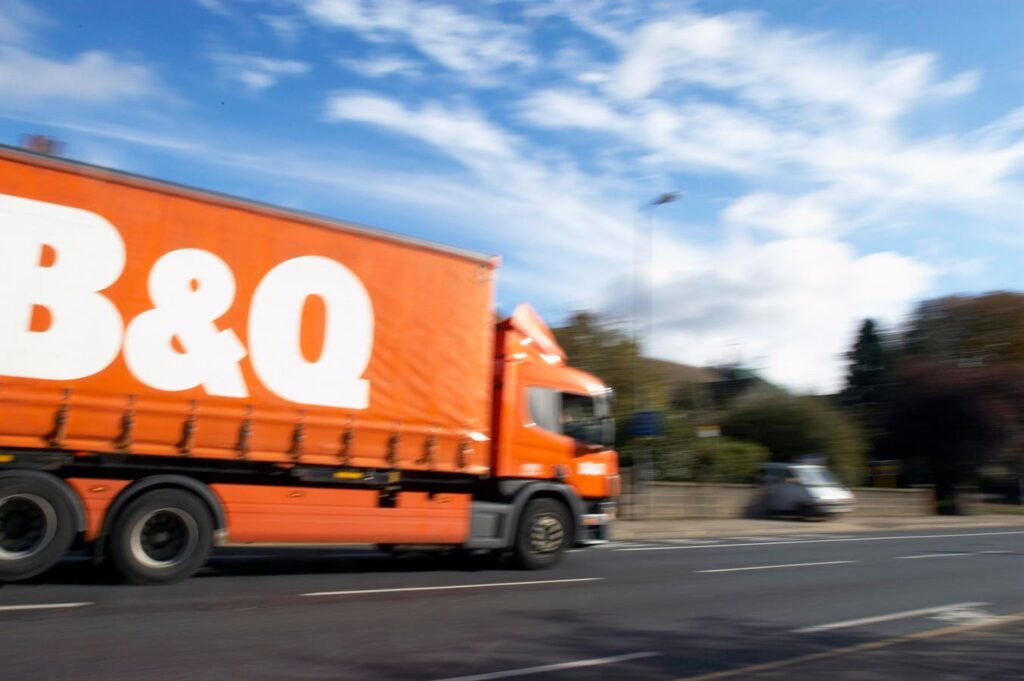Kingfisher, the FTSE 100 retailer, experienced a significant downturn in its share price, which fell by 12.8% to 257.1p on Monday. This decline was largely attributed to a persistent weakness in sales, prompting the company to adjust its profit forecasts for the financial year ending in January 2025. Kingfisher’s pre-tax profit is now expected to fall between £510 million and £540 million, a reduction from the previous guidance of £510 million to £550 million. The company’s overall sales figures reflected the challenging market conditions, with like-for-like sales dropping by 1.1% in the three months leading to October, bringing the total turnover to £3.2 billion, down 0.6% from the same period last year.
In contrast to the overall decline, Kingfisher saw a positive trend in its largest market, the UK and Ireland, where sales rose by 1.2% to £1.6 billion. The growth was primarily driven by the Screwfix unit, which reported increases of 4.6% and 1.8% in reported and like-for-like sales, respectively. The company attributed this strong performance to robust demand from trade customers and positive growth in core categories. This segment highlighted Kingfisher’s resilience amid broader market uncertainties, showcasing its ability to leverage customer demand, particularly from trade consumers.
However, Kingfisher’s experience in France was markedly different, as consumer sentiment there continued to decline sharply. Reported sales in France fell by 6.4%, with like-for-like revenues down 4.3%. The company linked this downturn to several factors, including adverse weather conditions and an overall weak consumer sentiment exacerbated by the recent draft Finance Bill for 2025, which proposed new tax hikes and austerity measures. These developments have contributed to a cautious spending environment, affecting Kingfisher’s ability to maintain momentum in the French market.
The broader context of increasing uncertainty in the markets was acknowledged by Kingfisher’s chief executive, Thierry Garnier, who described trading conditions as “resilient” but noted that the improvements observed in August and September were offset by rising consumer uncertainty in October, primarily due to government budget announcements. He emphasized that the political and macroeconomic turmoil in both the UK and France has added layers of uncertainty to the near-term outlook, compelling the company to concentrate on its strategic goals, including market share growth and effective management of retail prices, costs, and cash flows.
The impact of upcoming tax changes in both countries is also a concern for Kingfisher, with anticipated costs rising by £45 million as a result of the measures outlined in recent budgets. Specifically, tax costs in the UK are expected to increase by £31 million, while those in France could rise by £14 million. This financial strain, alongside declining sales figures, particularly in France, adds to the challenges faced by the company as it approaches the final quarter of the financial year.
Despite these challenges, Kingfisher reported that trading had shown some improvement in the current quarter compared to the prior period. Like-for-like sales for the three weeks up to November 23 were down by just 0.5%, suggesting some signs of stabilization amidst prevailing uncertainties. However, analysts remain cautious. eToro analyst Mark Crouch characterized Kingfisher’s situation as “shaky,” stressing concerns about the continuing sales decline in France. He acknowledged Screwfix’s relatively strong performance that has helped mitigate some challenges, yet he warned of the potential for deeper issues if the trends in the French market do not reverse. Overall, Kingfisher’s path forward remains fraught with challenges as it navigates a deteriorating operating environment.

